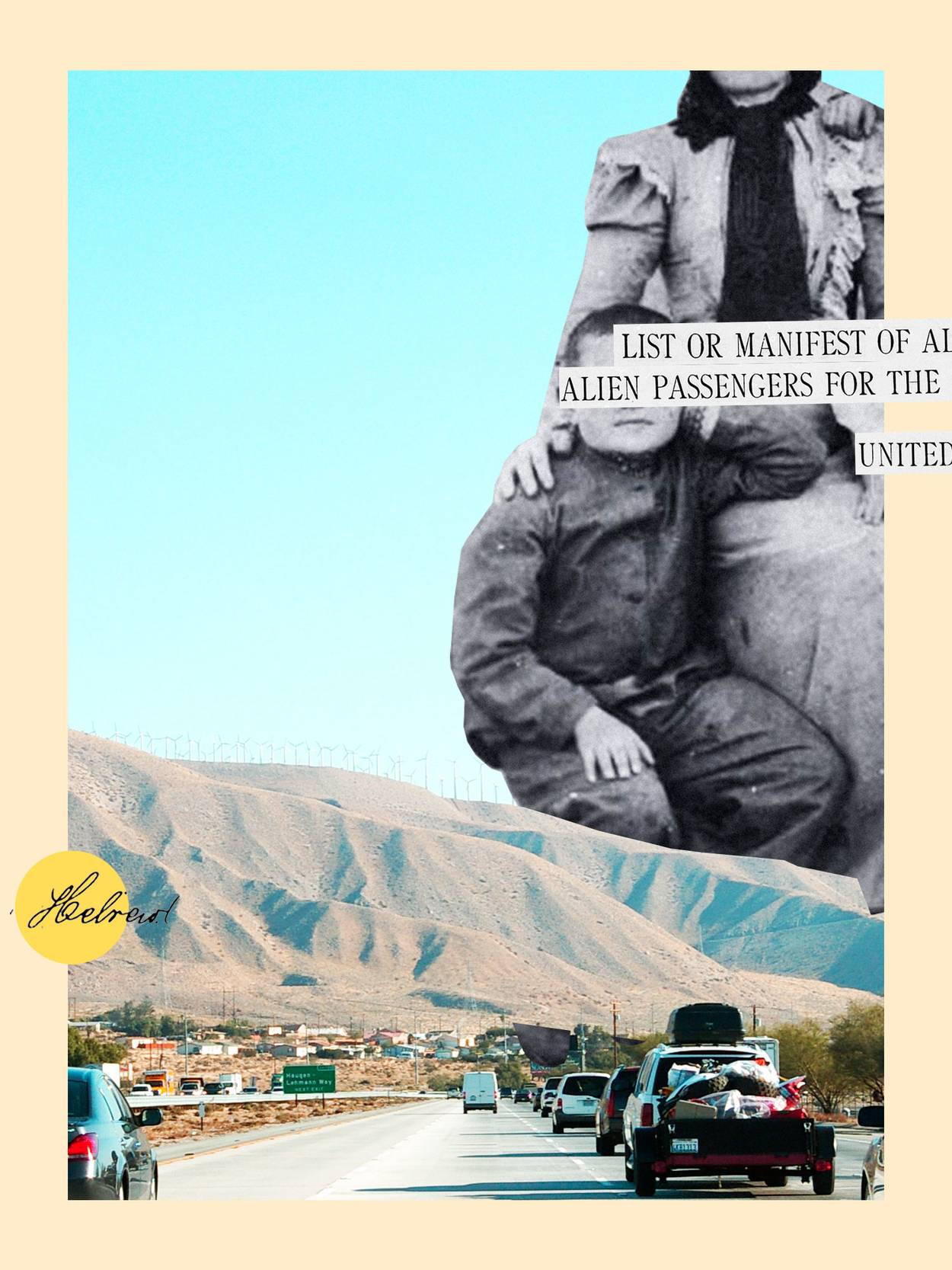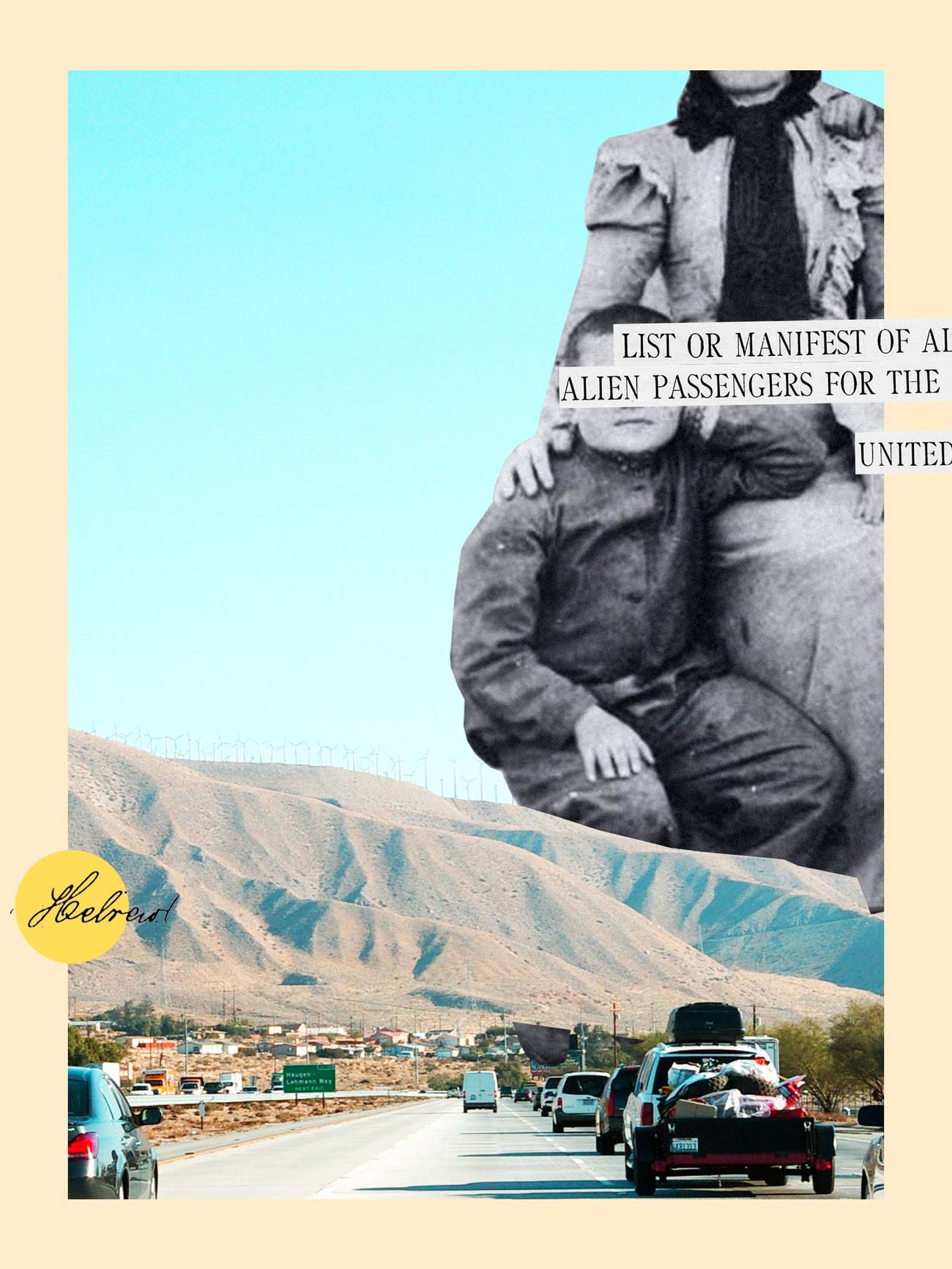Poems for the Ancestors
Dan Alter’s debut collection explores Jewish melancholy and the joys of Neil Young




This article is the third installment of Tablet’s celebration of National Poetry Month. Take a look at the previous entries, Sean Singer’s “Today in the Taxi” and Victoria’s Redel’s “Paradise.”
Dan Alter’s poetry collection My Little Book of Exiles (Eyewear Poetry, 2022) may be a debut, but it is a debut that’s been long in the making. And this isn’t only because some of the poems in the collection go a decade or more back. In fact, as I read the collection, I had a distinct feeling that Alter’s poetry precedes itself, precedes Alter, and stretches all the way across Jewish history to its invisible mythopoetic roots, to its tropes and sounds. Alter’s poetry is lyrical and personal, even when it is invoking Yiddish actors or medieval Hebrew poets. It is as if the very conditions of the poet’s inner world are explainable in terms of these ancestral tales, traumas, and exiles.
The range of Alter’s melancholy is truly vast in this collection. In “Redemption Song” the poet recounts: “how directly / sad you were your despair gave off / a gray light.” In “Your Room,” in a more humorous but equally resigned tone, he quips: “you were dating Neil Young’s / daughter, which she turned out not / to be.” Another poem, “Resolving,” opens with: “The problem with sleep is also / the absence of God.” This latter jagged segment has a bit of dream syntax to it, which only intensifies, with mysterious beauty, a kind of existential insomnia, pained and self-aware, that permeates the collection as a whole.
There is, of course, plenty of light and joy in these poems, too. Sometimes it is inspired by nature, other times by reminiscing, and others yet by music—Bob Marley, Paul Simon, John Lennon, and Neil Young are only some of the musicians Alter’s collection is in conversation with. In addition to ancestral geography, there are Israeli landscapes here along with rhyming landscapes of California, as well as the American Midwest.
The first of the two poems by Dan Alter which we are featuring today is “Labor Poem #6.” There is nearly a dozen of these labor poems in the collection, and they are united stylistically and thematically. These are the poems that reference varieties of manual work (Alter is currently employed as an electrician). The peculiar style that unites these poems involves thin shreds of curt, repeating observations, as if there isn’t much room for words in the work the poet is describing. Yet it is precisely the curtness that heightens the intensity of the images and transposes them into music.
The second of Alter’s poems featured here today is “Fog Over Ashkenaz,” which is a kind of anthemic diaspora poem with a haunting question for its opening line. The poem’s peculiar spacing may signify pauses in the poet’s contemplation; it can also be read as a set of gaps in the availability of one’s ancestral history, or even self-knowledge. Even though the poem is unmistakably in the minor key, there is a kind of pride here, too: “1100 years of sojourning can’t be wrong,” asserts the poet. It can’t be wrong, the way a melody can’t be wrong, or a human life itself can’t be wrong, or a shred of history lurking inside of a gorgeous personal poem.
Labor Poem #6
Tractor delivery route, Kibbutz Gesher Haziv
But I failed at the curve. The perimeter
fence, the windbreak trees. To back up. The wheels,
how fast on a dirt road. The loading dock, fresh
from the chicken house, dust motes of mid after-
noon. The bulk of laundry bags, stacked cylinders
of the children’s meals, chicken house. Down around
the curve. To back up with a trailer, the front
wheels. Fresh eggs, stacked, the wheels which way, or you
jackknife it. Mid afternoon, the bulk of,
with a trailer to the loading dock. Bags, stacked
cylinders, the perimeter skid, the wheels,
failed. Down around, on a dirt road how fast does
a tractor. A section of fence. Down. The wind-
break trees. Dust motes. A trailer, which way the wheels.
Fog Over Ashkenaz
Could I have come from nowhere
Ancestors’ ground a floating zone between countries
called the Pale or was that from the shade of their skin
in Christian shadows My father’s eyes
come from names I’ve tried to learn & lost
1100 years of sojourning can’t be wrong but my four
grandparents among the lucky enough
to leave before The trouble I’m starting out in
a gap that widens In the swallowing whole was it all
lost or did their spirit filter to points the letters
mark a hole I’m looking into Yiddish
speakers in shade of black forests Somewhere near
say Vilna their feet must have touched ground Alter
meaning elder in Yiddish which is sticky with
11th Century German what haven’t you lost
of their art Fog is general all over Ashkenaz
In minutes the shtetl names have drifted Wouldn’t
I feel a whole lot better not rummaging
for origins in that tight a crawlspace Still
five layers of shade make the skin paler
than fog Yes it ended badly but my father
didn’t get his blue eyes from nowhere
Jake Marmer is Tablet’s poetry critic. He is the author of Cosmic Diaspora (2020), The Neighbor Out of Sound (2018) and Jazz Talmud (2012). He has also released two jazz-klezmer-poetry records: Purple Tentacles of Thought and Desire (2020, with Cosmic Diaspora Trio), and Hermeneutic Stomp (2013).